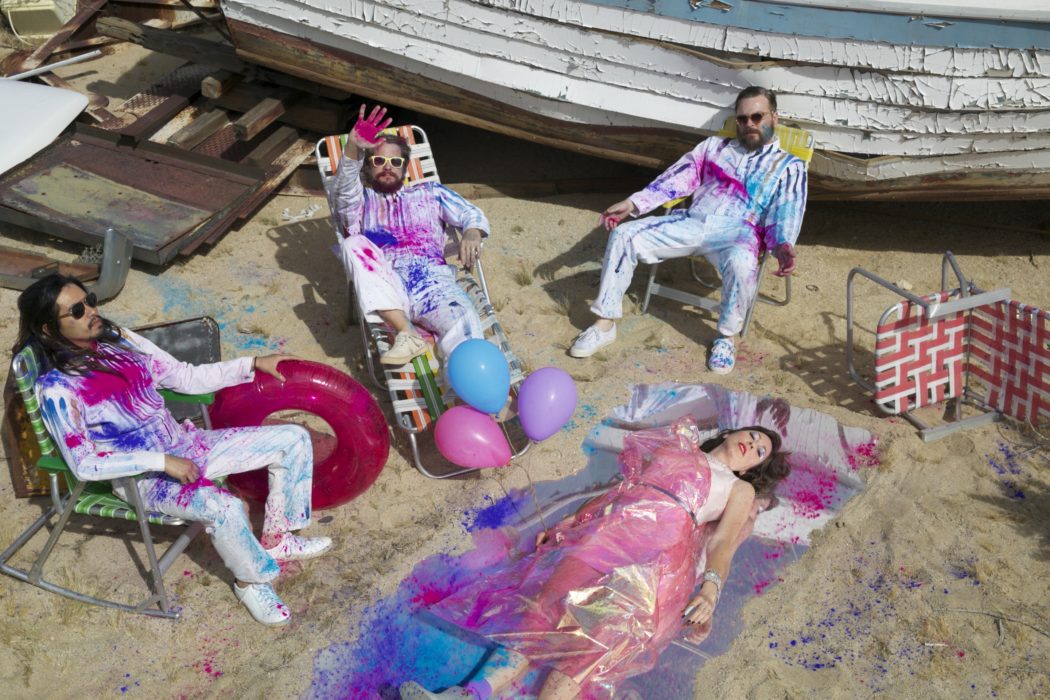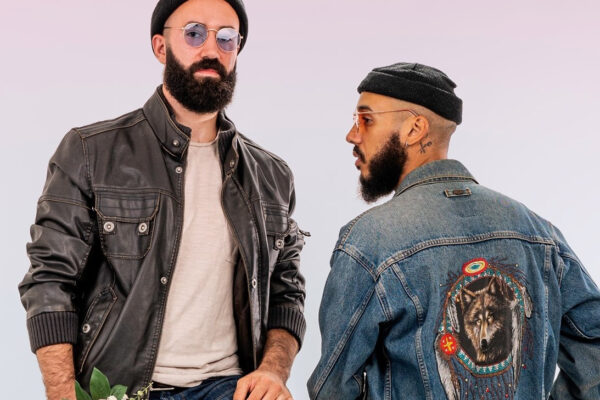For any lifelong musician, trying to remember all the shows you’ve ever played would be as impossible as trying to recall every sunset you’ve ever seen. Although in between each blurred scrap of a memory –some indecipherable, some crystal clear- there are bound to be pictures of moments that have shined so bright and felt so vivid that they just won’t leave you. For Silversun Pickups frontman Brian Aubert, one of those unforgettable performances happened at a key point in the band’s story, setting in motion a sequence of events that would lead the Los Angeles based group to devote themselves to making music in a way they hadn’t before. “The switch flipped in our minds,” he said during a conversation with Pancakes and Whiskey in late November. “This was a couple years in, where it stopped becoming something we were just looking at it in a kind of passive way,” he recalled of the immediate, energizing affect of sharing a bill with Rilo Kiley and Elliott Smith. “It basically went from the back of our brains and it shot up to the front of our brains. After that show, we were able to turn the critic off a little bit. We thought like, ‘Wow, we were up there,’” he said, breaking out into a laugh, “‘and it went well.’” Looking back on that seminal early gig, Aubert said they had been invited to open for Smith by the artist himself, before describing how he had walked off the stage that night with a feeling that he wouldn’t forget. “From that moment on, everything changed as far as how we felt about Silversun. It was really crazy. I don’t think I slept for two days after that.”
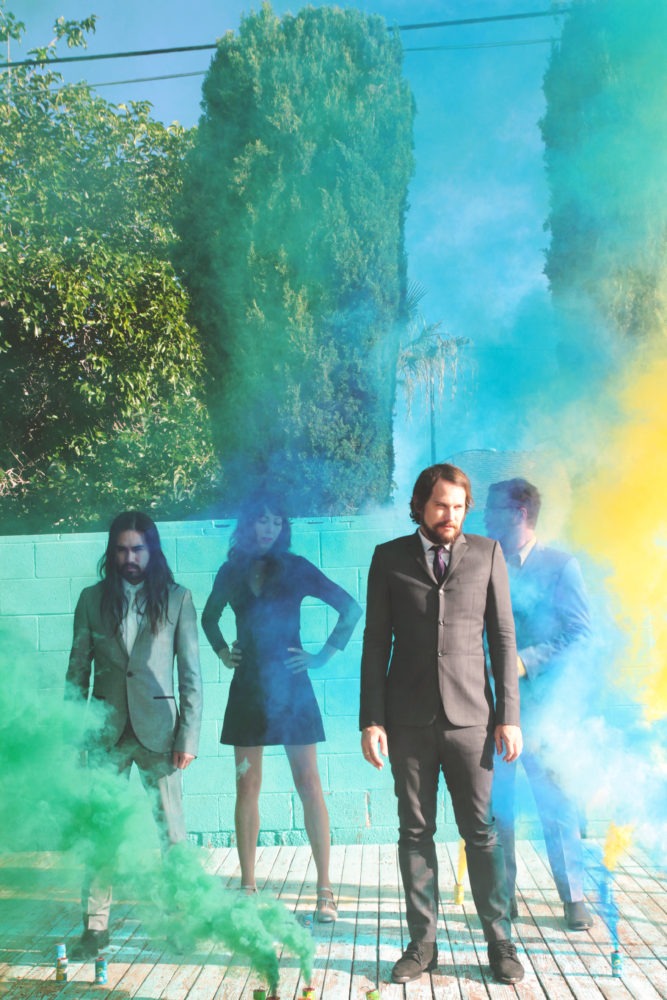
Silversun Pickups photo: Claire Marie Vogel
Officially forming the group in 2000, Aubert recalled how he and bassist Nikki Monninger had met years prior on a plane set for London. Still students at the time, they had crossed paths before but would not formally meet until he happened to catch her taking liquor off of a drink cart. “We were both on a study abroad program and I saw her at a meeting- this looked like sort of an innocent Orange County type,” he laughed. “And then on that long flight -at the time I remember thinking this is the longest flight of my life- I just felt like, ‘Oh my God, what am I doing, I’m moving to England,’ and I looked over at her and every time a stewardess was looking away, she just kept reaching in the cart,” he said before later adding, “I remember at that moment going, ‘I’m never judging anybody again.’” Close from the start, they ended up sharing a place with a group of friends some years later once they returned to LA and started playing music. “Nikki and I were both in different bands, really, and we would congregate in the kitchen every night and sort of discuss the fantasy of like, ‘Well let’s ditch these bands and do our own thing,’” he said of those days. “And we were like, ‘Yeah, yeah. We’ll get to it, we’ll get to it.’ Didn’t really put too much credence into it and then, as the bands started falling apart, we weren’t even aware that we already kind of started it. We were already in the practice space and so we didn’t even have time to think about what happened to the other bands because all of a sudden we were knee deep in this.”
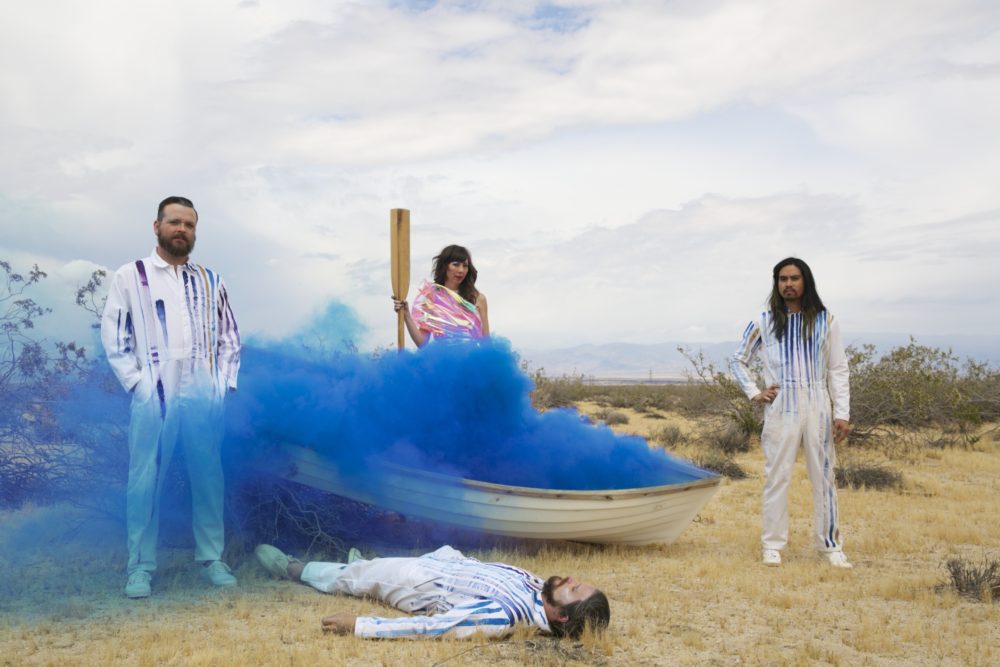
Silversun Pickups photo: Rebekkah Drake
For the first few chapters of their existence, the Silversun Pickups focused their efforts entirely on playing live and honing their sound. Although when Aubert, Monninger, Christopher Guanlao and Joe Lester did consider recording, the musician said it was only when they saw someone passing around a bootleg of one their club gigs at another one of their shows. “If people want to hear this, then maybe it’s time we buckle up and start recording and going to this new level,” he remembered thinking. Now four albums into their career as a band, they’ve managed to bring the core of their instantly recognizable sound to each new endeavor. And as their lead singer described, once they found that sound, it never really left them. “The one thing that is constant and can’t be moved- we always call it the ‘immovable object’ – is that there is something that happens when we get together and there’s a sound that happens. And if you like it or not, we can’t escape it,” he noted of their musical style. “There’s just always going to be this anchor, and that’s what sort of gives us the freedom to know that that’s always there. And each record, we can try to run as far away from it as we can knowing that we’re still rooted in ourselves.” Valuing the type of creative strides that honor that selfhood, he spoke about appreciating the individuality in music and how the group has always let their instincts guide them. “We always like it when you go to a bar and a jukebox comes on, and you hear the band and you know the album – ‘Oh, I know that album, that’s Surfer Rosa because that’s how that sounds,’” he said. “It’s always been important to us, to -in the beginning of making records- find the sonic glossary that we’re going to use. And we don’t do it on purpose, but again, it comes from just being interested in different things. And so we’ve done that record before and now what is this one going to sound like and how is this going to be shaped?” Discussing how those different sounds have the potential to take an audience by surprise, he went on to talk about how they’ve always made their music with consideration for the long term and not the short term. And after describing how they even find a level of excitement in any initial puzzled reactions, Aubert spoke about how the bands aim is to produce something that a listener will want to digest, dig into and live with much longer than that first listen. “It’s always about to us, like ten months in, how does the record stand with you? Not that first minute,” he explained. “I hope that first play through you like it the least you’ll ever like it. We always think about our records and how they’re going to exist forever, instead of how they’re going to exist when it comes out.” Although as he later said, part of those stylistic changes can’t help but stem from the fact that any band is destined to be joined to the same track listing for a long stretch of time.
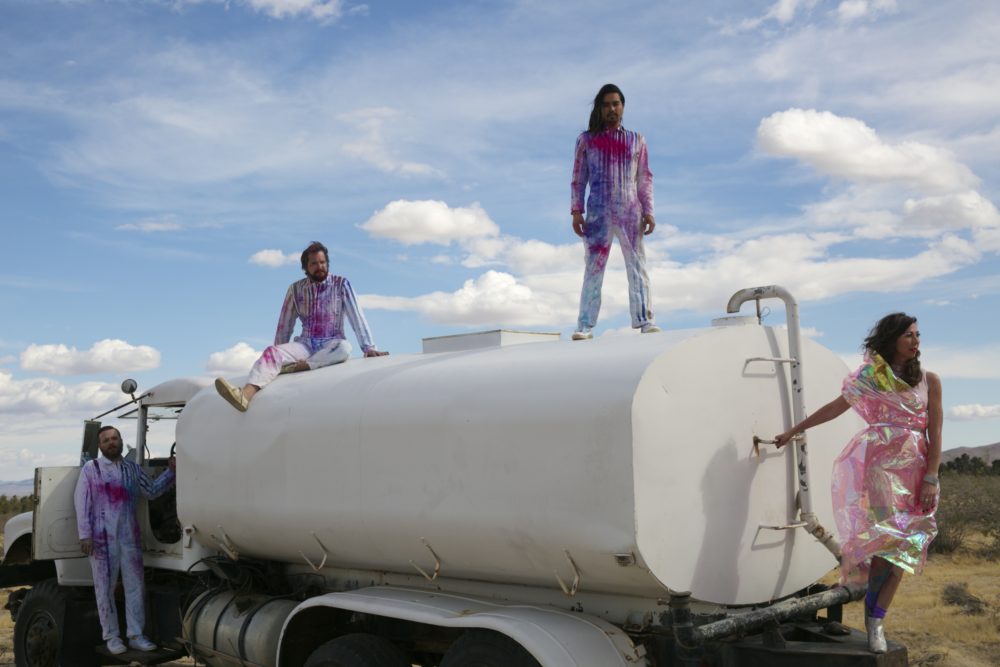
Silversun Pickups photo: Rebekkah Drake
“Write a record, record it and release it, that’s probably about a year,” he began. “Then you’re touring for about almost two years with it. So by the end of the touring, you can almost feel yourself get fidgety. You’ve lived in that record for quite a long time and just being alive for three years in general makes your interests shift. So I think how we start the next one is usually sort of an unconscious rebellion against what we were doing on the previous one. So the last record was called Neck of the Woods and it had a lot of little rules that we put on it that were these sort of geometric shapes and not getting too bombastic, and the whole record has a nostalgic point of view. It was very past tense, which was something different for us. It was just how we were feeling at the time. But after that, I knew from coming in right away from writing the first song that this thing, like all the lids are going to be off. The feeling is just going to be gone. Everything is going to be turned up all the way. Like everything. Like if there’s a drum machine, the drum machine’s loud. I wanted it to feel like a fever dream with almost nothing underneath it.”
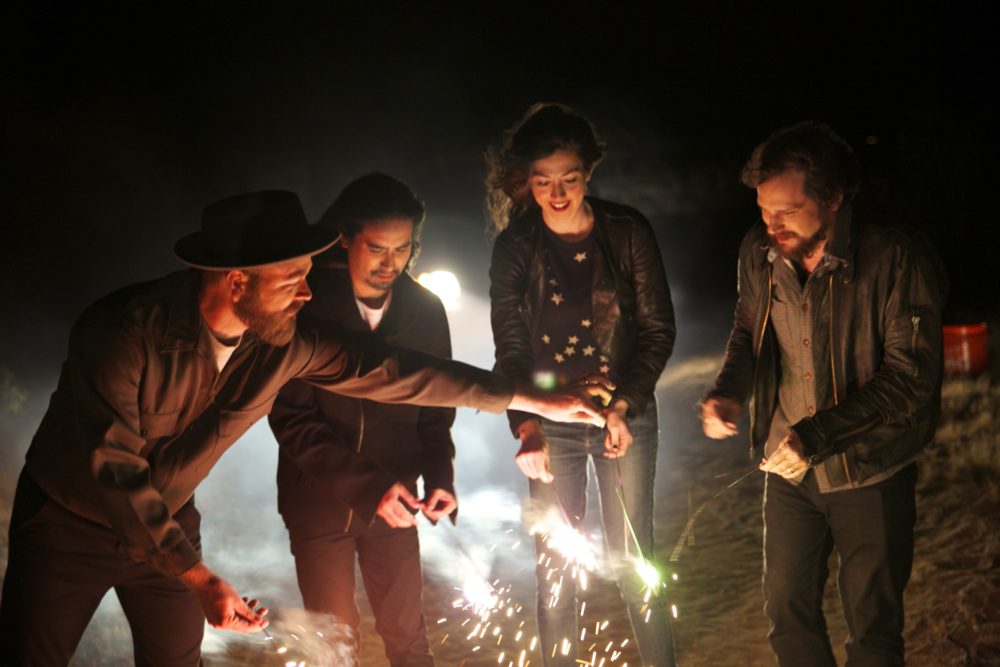
photo: Rebekkah Drake
Filling that newest album, Better Nature, with the same madcap spirit they felt in the studio, Aubert spoke about the furious pace and rewarding experience that has come to define the behind the scenes adventure of their fourth LP. “If anybody fell behind we had to make sure we picked them up and said, ‘No worries, let’s get to it!’” he remembered with a laugh. “And that’s what it was like. The whole thing just felt like the wild west.”
Article: Caitlin Phillips

